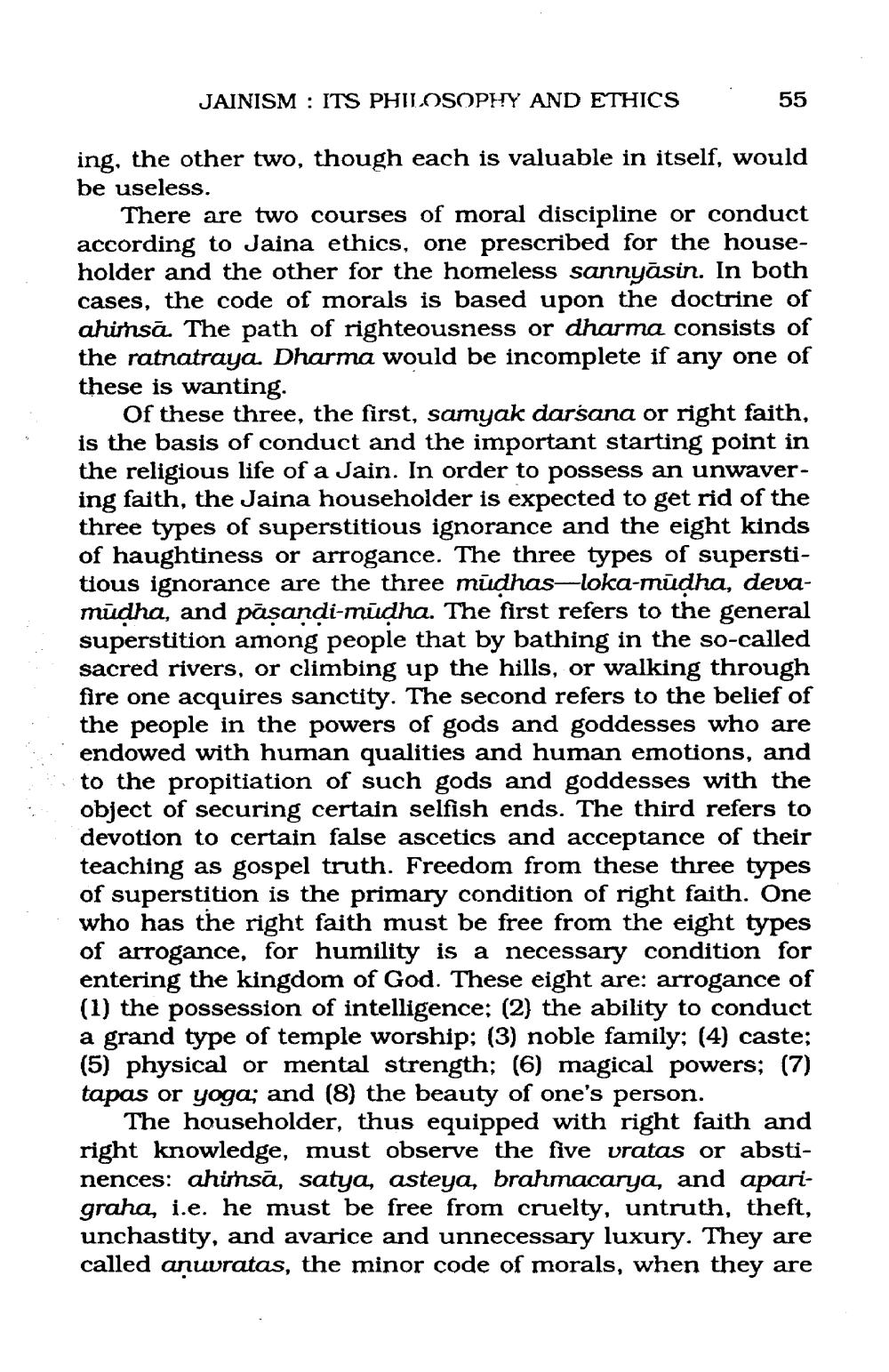________________
JAINISM ITS PHILOSOPHY AND ETHICS
55
ing, the other two, though each is valuable in itself, would be useless.
There are two courses of moral discipline or conduct according to Jaina ethics, one prescribed for the householder and the other for the homeless sannyāsin. In both cases, the code of morals is based upon the doctrine of ahimsa. The path of righteousness or dharma consists of the ratnatraya. Dharma would be incomplete if any one of these is wanting.
Of these three, the first, samyak darśana or right faith, is the basis of conduct and the important starting point in the religious life of a Jain. In order to possess an unwavering faith, the Jaina householder is expected to get rid of the three types of superstitious ignorance and the eight kinds of haughtiness or arrogance. The three types of superstitious ignorance are the three mūḍhas-loka-mūḍha, devamūḍha, and pāṣaṇḍi-mūḍha. The first refers to the general superstition among people that by bathing in the so-called sacred rivers, or climbing up the hills, or walking through fire one acquires sanctity. The second refers to the belief of the people in the powers of gods and goddesses who are endowed with human qualities and human emotions, and to the propitiation of such gods and goddesses with the object of securing certain selfish ends. The third refers to devotion to certain false ascetics and acceptance of their teaching as gospel truth. Freedom from these three types of superstition is the primary condition of right faith. One who has the right faith must be free from the eight types of arrogance, for humility is a necessary condition for entering the kingdom of God. These eight are: arrogance of (1) the possession of intelligence; (2) the ability to conduct a grand type of temple worship; (3) noble family; (4) caste; (5) physical or mental strength; (6) magical powers; (7) tapas or yoga; and (8) the beauty of one's person.
The householder, thus equipped with right faith and right knowledge, must observe the five vratas or abstinences: ahimsā, satya, asteya, brahmacarya, and aparigraha, i.e. he must be free from cruelty, untruth, theft, unchastity, and avarice and unnecessary luxury. They are called aṇuvratas, the minor code of morals, when they are




